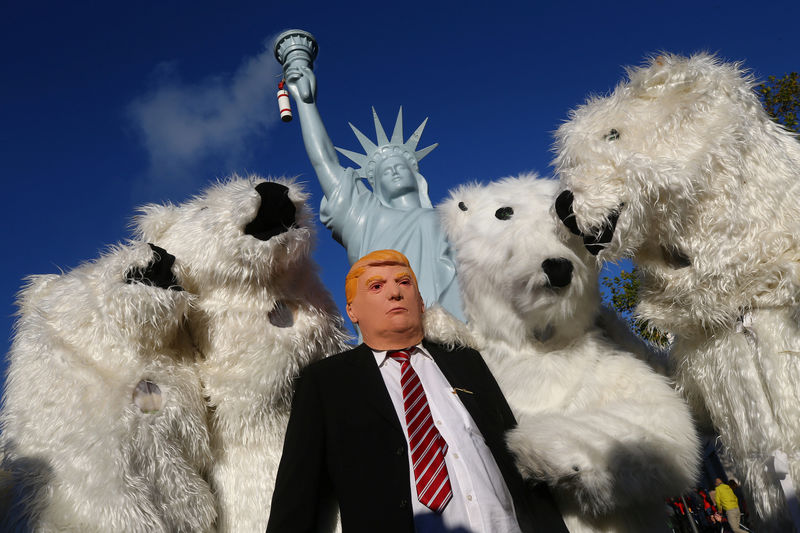By Environment Correspondent Alister Doyle
OSLO (Reuters) - Governments will try to bolster a 2015 pact to combat climate change at annual talks in Germany from Monday strained by President Donald Trump's plan to pull out and instead promote the U.S. coal and oil industries.
Fiji's Prime Minister Frank Bainimarama, who will preside at the Nov. 6-17 talks of almost 200 nations in Bonn, says he wants more urgent action to cut greenhouse gases as part of the 195-nation Paris Agreement.
"The human suffering caused by intensifying hurricanes, wildfires, droughts, floods and threats to food security caused by climate change means there is no time to waste," he said in a statement on Sunday outlining his goals.
Delegates will work on a detailed "rule book" to help guide the 2015 Paris climate accord, which set a goal of ending the fossil fuel era this century by shifting to renewable energies such as wind and solar power.
But Trump doubts that human activities are the main cause of climate change - a finding endorsed most recently by U.S. scientists in a report on Friday - and said in June that he will quit the Paris pact.
A formal pullout will take until November 2020 and delegates say there are wide uncertainties about how far Washington will balance Trump's pro-coal agenda with the conference's goals.
Thomas Shannon, a career diplomat who once called climate change "one of the world's biggest challenges", will head the U.S. delegation. A U.S. official said Shannon currently planned to give no interviews.
Thousands of people demonstrated against coal in Bonn on Saturday with banners saying "Protect the climate: stop coal". Organisers estimated that 25,000 took part, while police put the number at 10,000.
In Germany, the issue of whether to end coal production has been one of the sticking points in coalition talks between German Chancellor Angela Merkel and her would-be allies in government: the Greens and the pro-business Free Democrats.
Worldwide, coal still plays a big role in the economy, especially in emerging economies such as China and India. The International Energy Agency says coal supplies a third of all energy used worldwide.

On Monday, the U.N.'s World Meteorological Organization will issue a report about where 2017 ranks on a list of the hottest years. NASA data show it is on track to be second warmest, behind 2016, in records dating back to the 19th century.